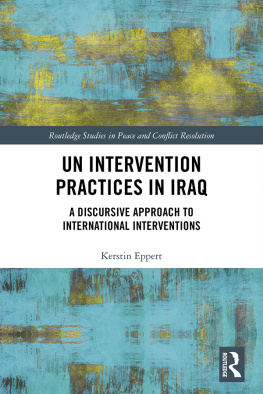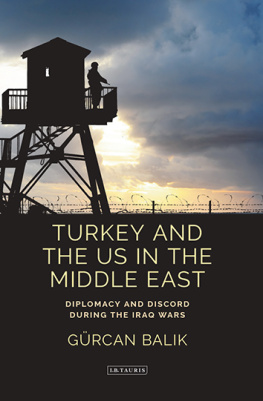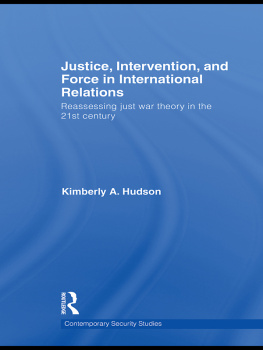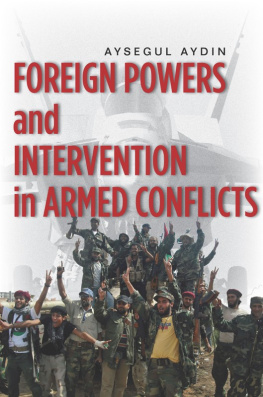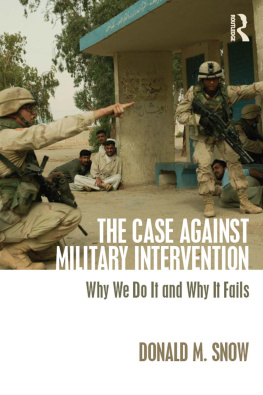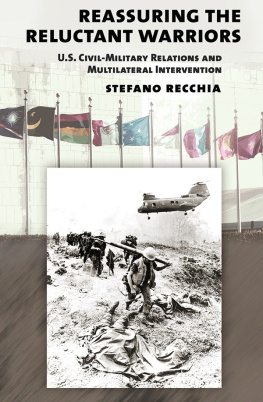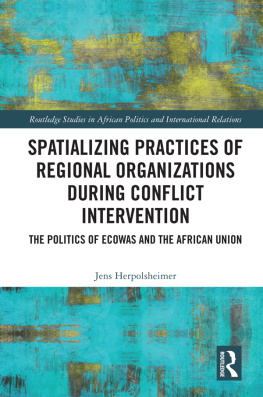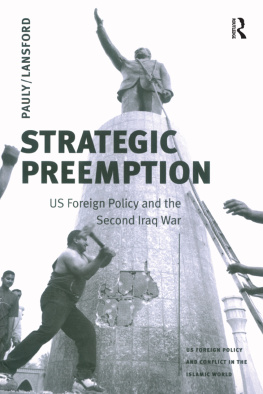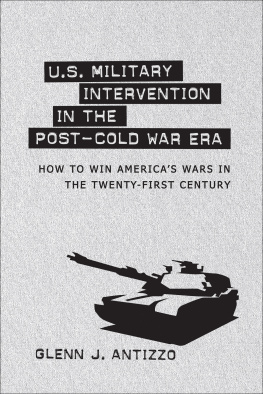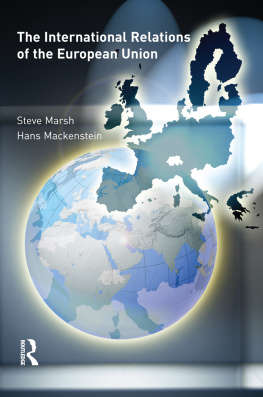UN Intervention Practices in Iraq
This book analyzes UN intervention practices in Iraq and develops a deconstructive approach to international interventions.
Hitherto, most analyses of the conflict in Iraq in 2003 have established the UNs role as path-dependent on the foreign policy of the US and the UK, and largely portrayed it as a mediator and fervent opponent of international intervention. Analyzing the UN Security Council and the later UN Assistance Mission for Iraq (UNAMI) from 2000 to 2010, this book undoes this path-dependency and puts the UNs relationship with Iraq center-stage. It develops a deconstructive, critical approach that identifies subject construction and reflexivity as central processes of intervention practices and concludes that (non-)intervention is deeply connected to the stabilization of political identities and representations. Using extensive primary data, the book contributes a new perspective on international interventions.
This book will be of much interest to students of peace and conflict studies, intervention and statebuilding, Middle Eastern studies and International Relations.
Kerstin Eppert is a postdoctoral fellow at the Institute for Interdisciplinary Research on Conflict and Violence, Bielefeld University, Germany. She holds a PhD in sociology.
Routledge Studies in Peace and Conflict Resolution
Series Editors: Tom Woodhouse and Oliver Ramsbotham
University of Bradford
The field of peace and conflict research has grown enormously as an academic pursuit in recent years, gaining credibility and relevance amongst policy makers and in the international humanitarian and NGO sector. The Routledge Studies in Peace and Conflict Resolution series aims to provide an outlet for some of the most significant new work emerging from this academic community, and to establish itself as a leading platform for innovative work at the point where peace and conflict research impacts on International Relations theory and processes.
Arab Approaches to Conflict Resolution
Mediation, negotiation and settlement of political disputes
Nahla Hamdan and Frederic S. Pearson
Local Peacebuilding and Legitimacy
Interactions between National and Local Levels
Edited by Landon E. Hancock and Christopher Mitchell
Climate Change and Resource Conflict
The role of scarcity
Judith M. Bretthauer
Transforming the Israeli-Palestinian Conflict
From Mutual Negation to Reconciliation
Herbert C. Kelman Edited by Philip Mattar and Neil Caplan
UN Intervention Practices in Iraq
A Discursive Approach to International Interventions
Kerstin Eppert
For more information about this series, please visit: www.routledge.com/Routledge-Studies-in-Peace-and-Conflict-Resolution/book-series/RSPCR
UN Intervention Practices in Iraq
A Discursive Approach to International Interventions
Kerstin Eppert
First published 2019
by Routledge
2 Park Square, Milton Park, Abingdon, Oxon OX14 4RN
and by Routledge
52 Vanderbilt Avenue, New York, NY 10017
Routledge is an imprint of the Taylor & Francis Group, an informa business
2019 Kerstin Eppert
The right of Kerstin Eppert to be identified as author of this work has been asserted by her in accordance with sections 77 and 78 of the Copyright, Designs and Patents Act 1988.
All rights reserved. No part of this book may be reprinted or reproduced or utilized in any form or by any electronic, mechanical, or other means, now known or hereafter invented, including photocopying and recording, or in any information storage or retrieval system, without permission in writing from the publishers.
Trademark notice: Product or corporate names may be trademarks or registered trademarks, and are used only for identification and explanation without intent to infringe.
British Library Cataloguing-in-Publication Data
A catalogue record for this book is available from the British Library
Library of Congress Cataloging-in-Publication Data
A catalog record has been requested for this book
ISBN: 978-1-138-35282-7 (hbk)
ISBN: 978-0-429-43452-5 (ebk)
Typeset in Times New Roman
by Wearset Ltd, Boldon, Tyne and Wear
Contents
The work on this book would not have been possible without the support of many peoplecolleagues and friends and family. I am most grateful for their goodwill and patience along the road. In particular, I would like to thank Mathias Albert and Timothy D. Sisk who were always available for critical discussions and both of whom helped me shape the focus of this book. I would also like to thank the Bielefeld Graduate School in History and Sociology for their creative and stimulating institutional network of doctoral researchers and their generous financial support in the form of travel grants for field research, conferences and copy-editing as well as financial support for child care during my field research. My heartfelt thanks go to the Heinrich Bll Foundation for a generous scholarship and, more importantly, a network of amazing people who made a great difference to me, and one that I am very proud to be part of. My further thanks also go to the German Foundation for Peace Research (DSF), who funded a related research project that financially covered a substantial part of the field research. None of the field research would have been possible without the great support of my former colleagues at the United Nations, in particular, Peter Batchelor, Jafar Javan and Sarmad Khan. My deep gratitude goes to Mitja Sienknecht, Thomas Mller, Martin Koch, Dorothea Wehrmann and Kerstin Hinrichsen for their collegial support, their inquisitive and substantive comments on draft chapters of this book, their ever-availability and listening ear in times of need, and their friendship. I am deeply indebted to my spouse and children for their care and their patience. I am not sure to be able to honor my childrens request to please never again write a book, but I will try to make the next one easier on them.
I dedicate the work on this book to my mother who left this place in 2016.
An earlier version of the manuscript was presented as a doctoral thesis at Bielefeld University in January 2017.
| A/ | Document of the UN General Assembly |
| A/RES | Resolution of the UN General Assembly |
| BCPR | Bureau for Crisis Prevention and Recovery |
| CDA | Critical Discourse Analysis |
| CPA | Coalition Provisional Authority |
| DPA | Department of Political Affairs |
| DPA-EAD | Department of Political Affairs Electoral Assistance Division |
| DPKO | Department of Peacekeeping Operations |
| DRA | DialecticalRelational Approach |
| EC | European Commission |
| ENMOD | Convention on the Prohibition of Military or Any Other Use of Environmental Modification Techniques |
| ERW | Explosive Remnants of War |
| EU | European Union |
| G7 | Group of Seven |
| GA | General Assembly (United Nations) |
| GoI | Government of Iraq |
| HRW | Human Rights Watch |

